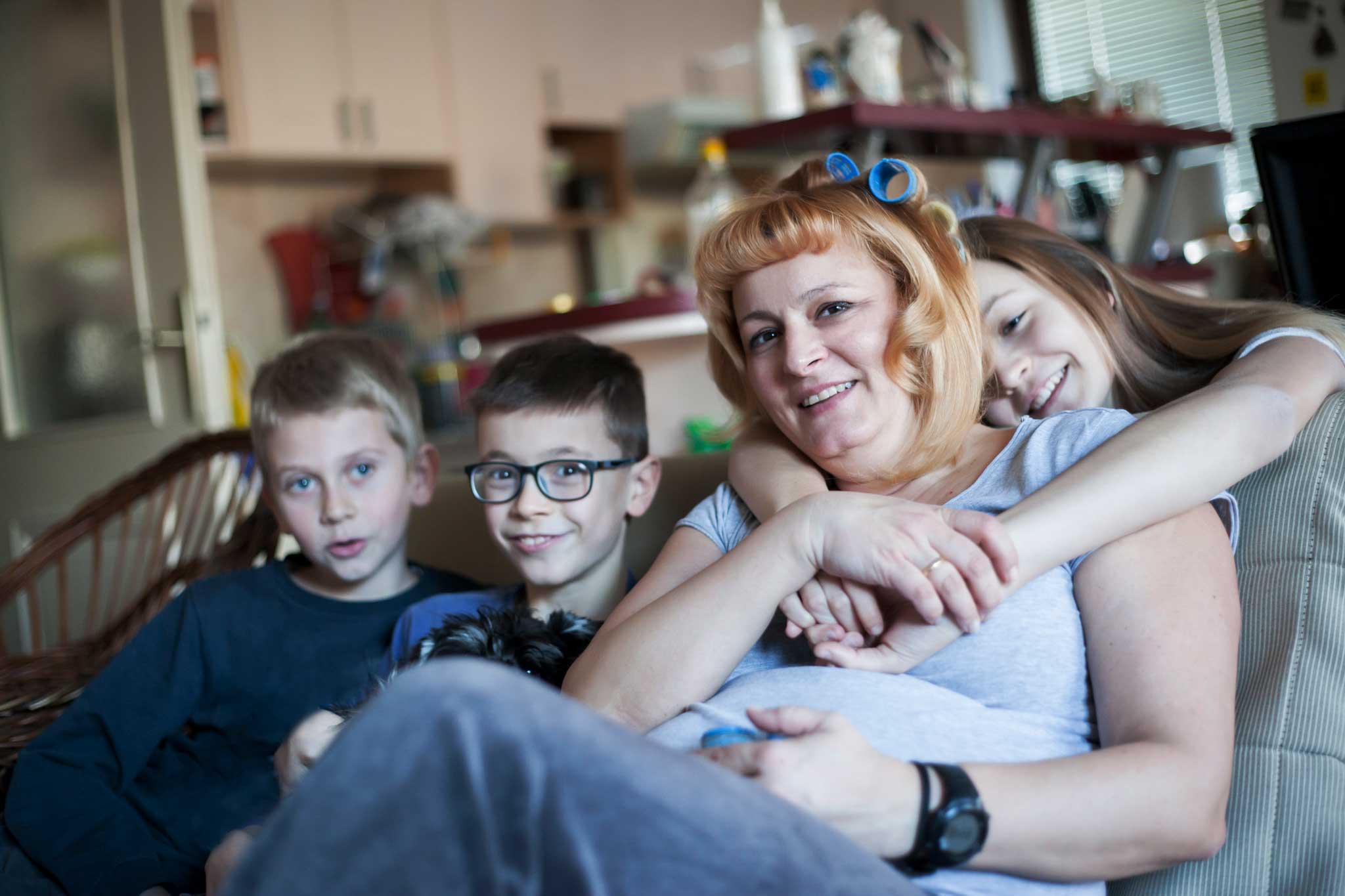Your Neighbors’ Voices
It was cold in Winooski at a recent VeggieVanGo distribution, and fanning out across the parking lot was the typical mix-match of Vermont spring attire: parkas and boots for some, shorts and sandals for others. That day, a sea of people in floral-print saris beneath down coats mixed with flip-flop and t-shirt-clad attendees, all of whom were there for one reason: food.
“How many people are you picking up for,” is the call heard over and over from volunteers.
“Two.” “Five.” “One.” “Twelve.” The muffled responses emanate from behind face masks, an anonymous chorus accompanying a growing line that wends its way along the length of the building before bending back toward Route 15. Overhead, F-35 fighter jets streak through the clouds, briefly silencing the crowd whose attention has been drawn skyward.
With people bundled up, faces obscured by masks, hats, and sun glasses, the idea of anonymity has a chilling effect. When we can’t easily identify a person, these voices are more easily imagined as being those of a neighbor, a friend, a sibling, a parent, or a grandparent. And across the state, the stories being told reveal a crisis that goes far beyond the immediate threat caused by the coronavirus.
“I collect my social security, that comes the third of the week. When that comes in that covers my rent,” said a Southern Vermont 3SquaresVT participant. “So I’m afraid to buy food, I’m afraid I don’t have enough money to pay like my electric and my phone bill and TV.”
Just across town at Feeding Chittenden in Burlington, volunteers hustle about in conveyor-belt fashion, creating pre-packed boxes of food that are quickly moved to the parking lot entrance for distribution. A line of people stretches out of the lot, 6’ of distance between each of them, one person at a time allowed to approach the desk at the entrance.
“What’s your name,” they’re asked.
“I’ve never been here before but my family is out of work and we don’t have any way to get food,” one visitor responds.
Throughout Vermont, the voices change but the stories are the same: I lost my job. My family is quarantined. I’m not working because I have to take care of my kids. My kids aren’t getting their school lunches anymore.
Regardless of our success in flattening the curve of the coronavirus, for many the devastation has already landed and will persist long into the future. In April, the Vermont Foodbank distributed 1.8 million pounds of food. This is more food than we’ve distributed in any single month since opening our doors in 1986. Our network partners throughout the state are seeing 40 to 100 percent increases in visits, and the Vermont National Guard has been deployed to distribute meals-ready-to-eat (MREs) throughout the state. What we’re learning is that as the coronavirus story unfolds, persistent and increased food insecurity for our friends, neighbors, and family members is an outcome, and if we’re to get through this, all of Vermont will need to respond.
“Yeah until this passes there’s just not much else we can do. Try to surf the wave and not go under, you know.”
Are You Able To Help?

